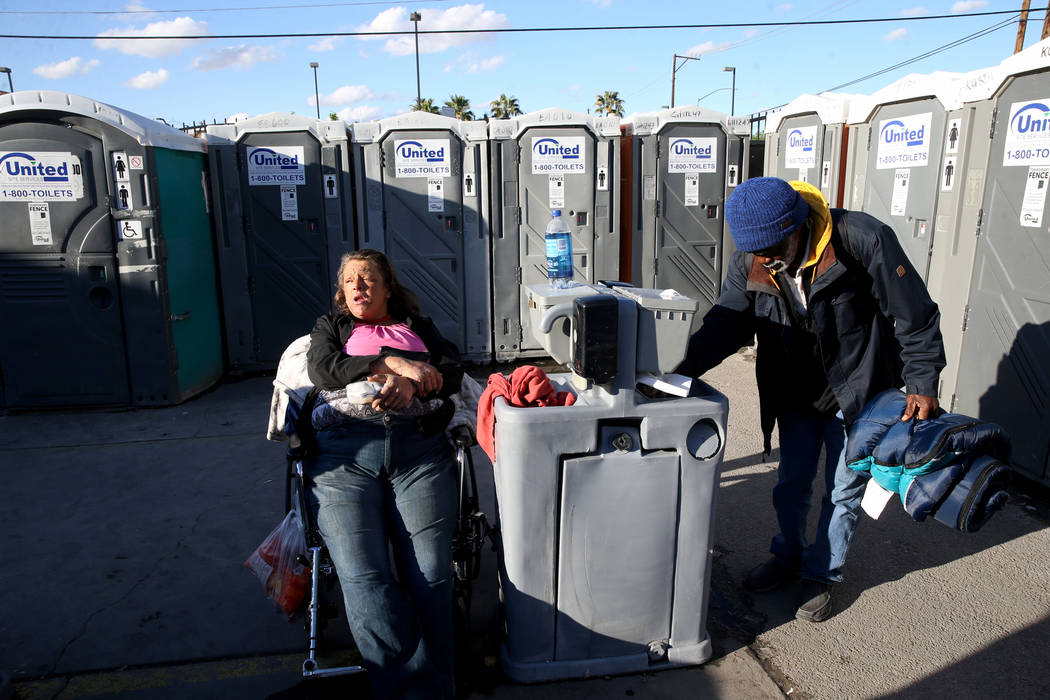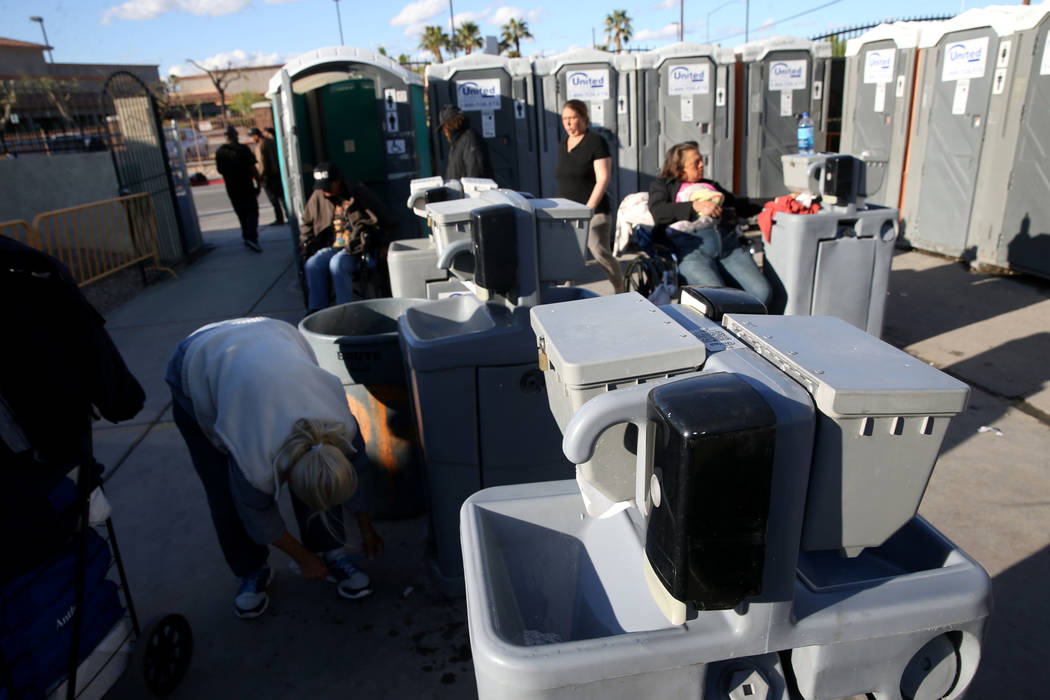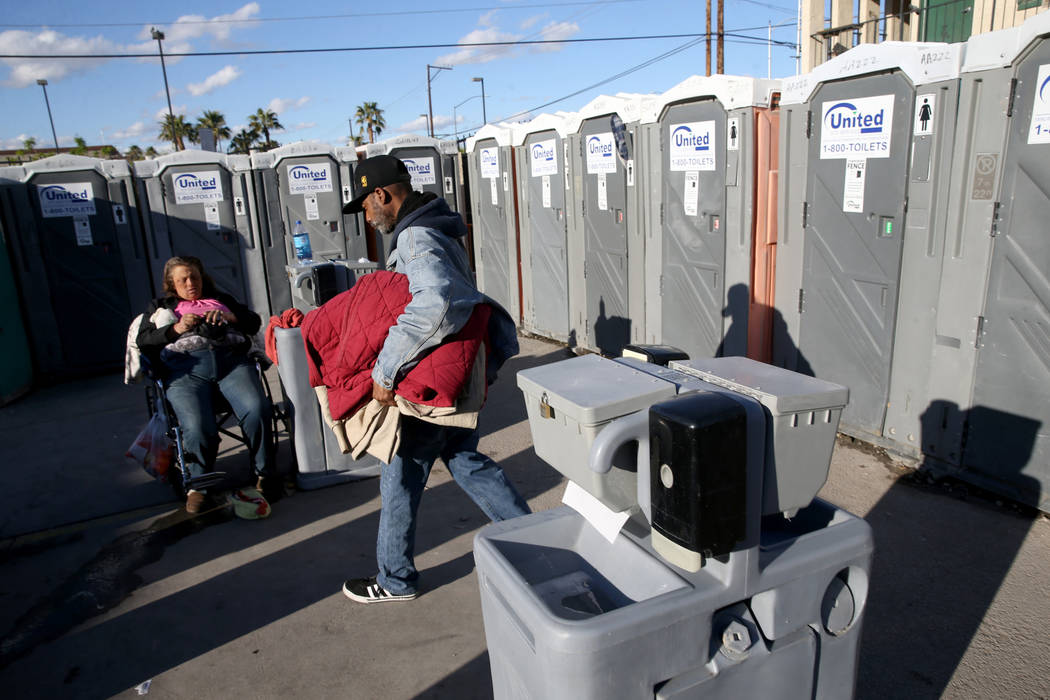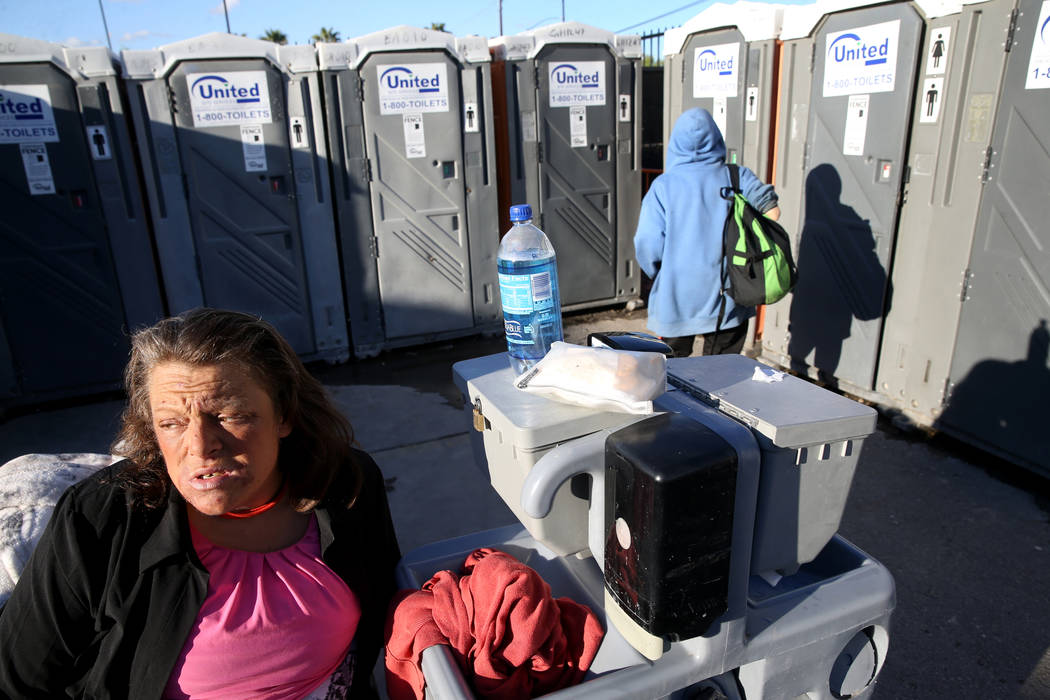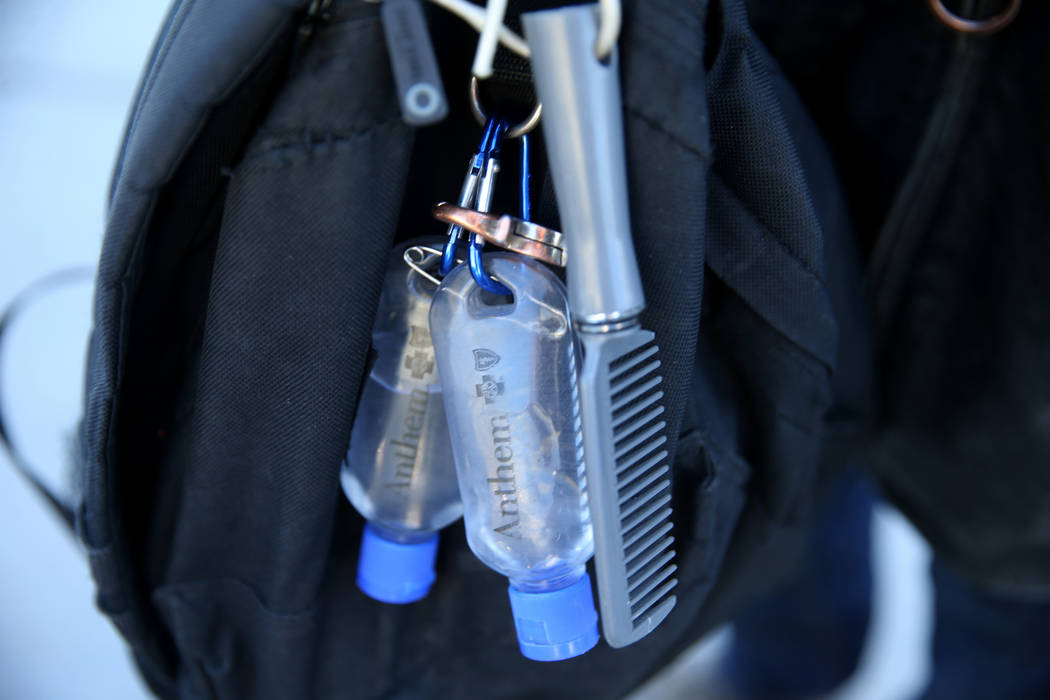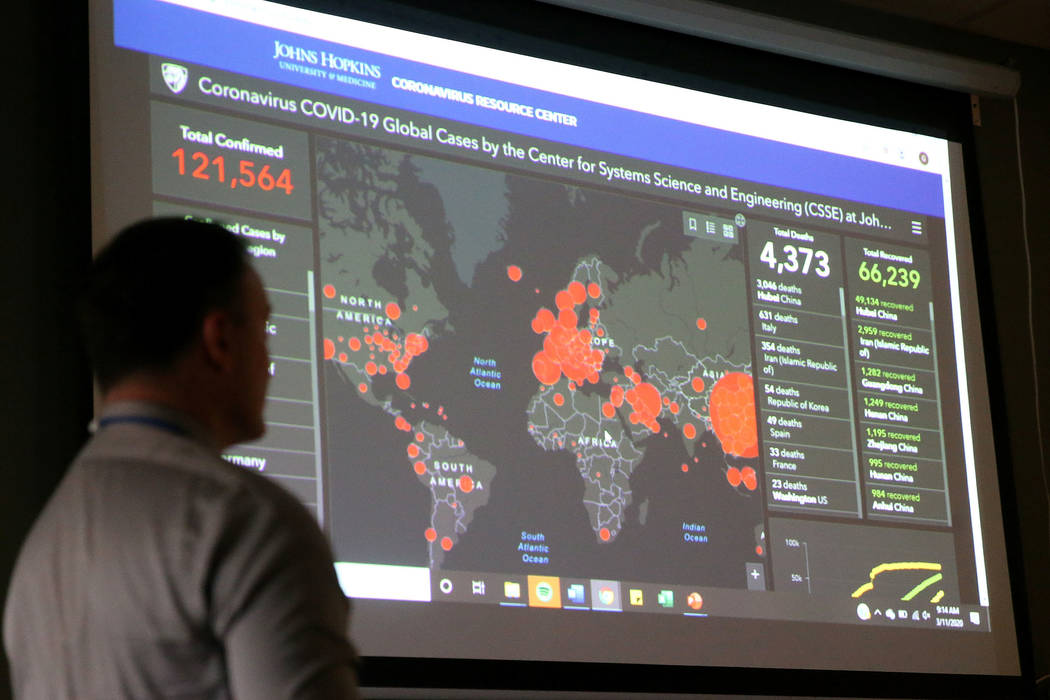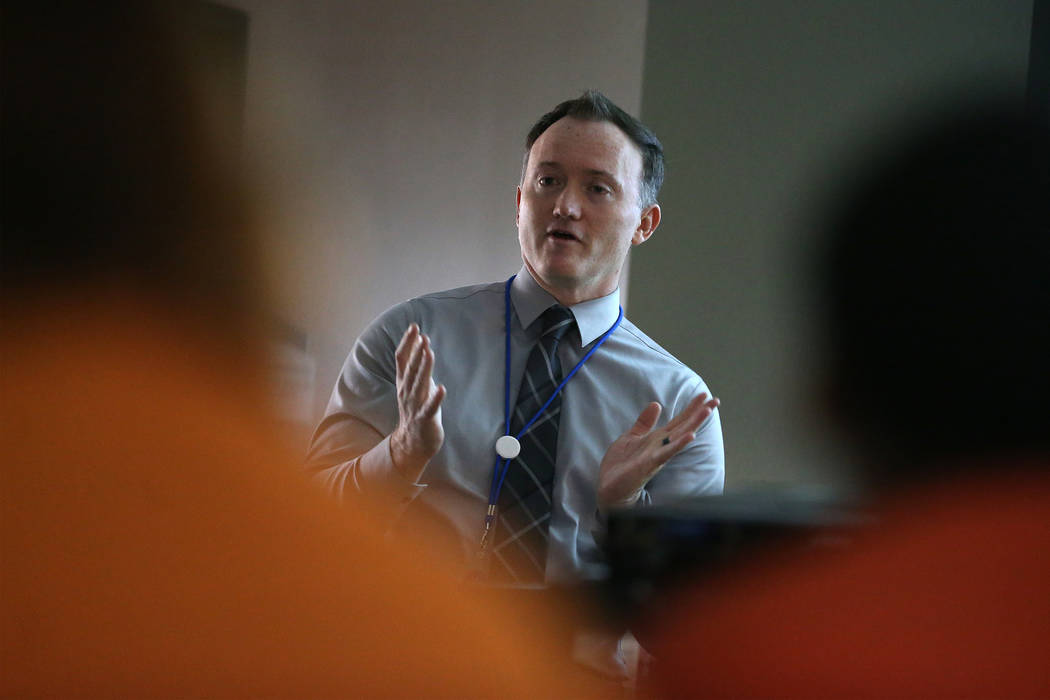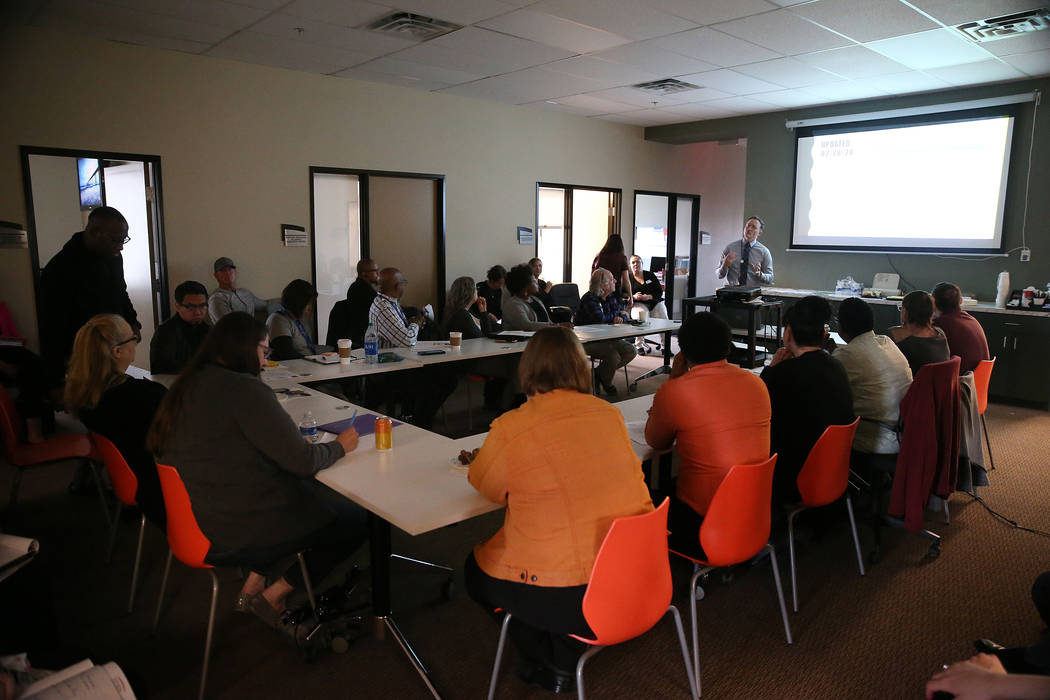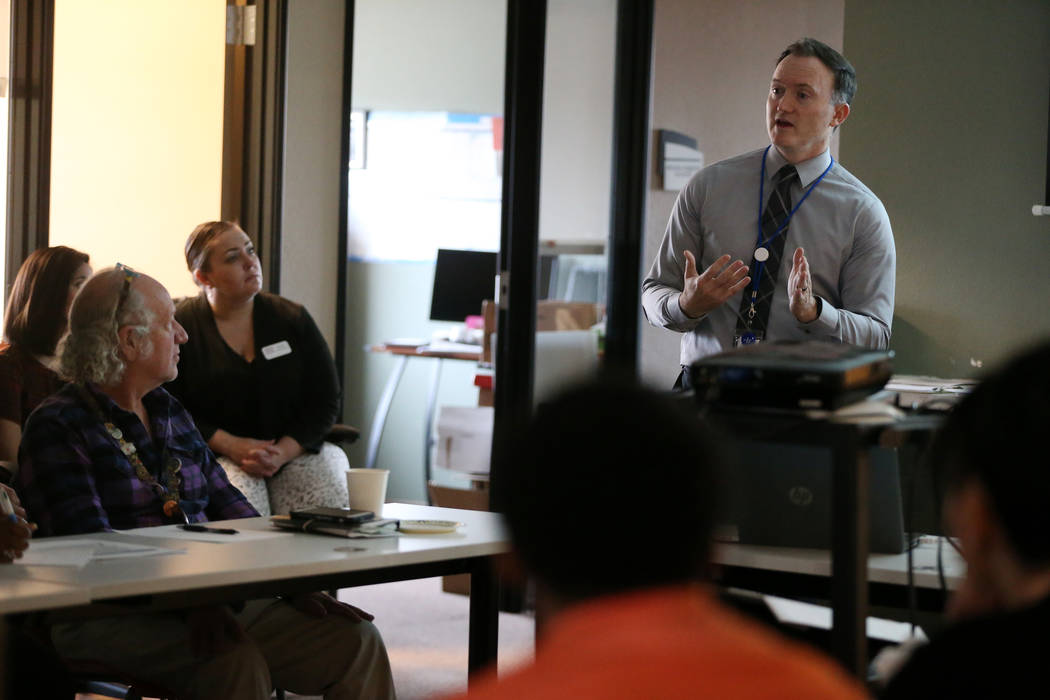Clark County officials discuss coronavirus prevention among homeless
For agencies dealing with Clark County’s sizable homeless population, one of the best weapons to ward off the threat of COVID-19 is hand sanitizer — lots of hand sanitizer.
That was one of the points made at a meeting Wednesday to discuss the threat the disease poses to the homeless by Dr. Chad Kingsley, the regional trauma coordinator at the Southern Nevada Health District.
Kingsley urged service providers to follow current protocols and guidelines for the flu or other illnesses, paying particular attention to what worked well during previous pandemics.
“Review what your organization has, what’s your current practice with influenza, the cold, within your population? What was your history dealing with the H1N1 virus?”
Kingsley said the health district would create a plan for protecting the homeless within the next two weeks.
Among the ideas being discussed, Kingsley said, were increased outreach, more hand-sanitizer stations and a direct line to the health district office for homeless people with questions.
Kingsley noted at the meeting at the Nevada Homeless Alliance that the homeless pose a particular problem for public health officials trying to slow the spread of the new coronavirus.
No home quarantines
They are more susceptible to contracting the disease caused by the virus because of the cramped living conditions in shelters and on the streets, the sharing of utensils and a general lack of access to hand-washing facilities.
There’s also a problem if they are infected by the virus, as the general response to the outbreak so far has been to order people to self-quarantine. But the homeless — by definition — have nowhere to do that, and must be isolated in medical or other facilities, adding to the overall strain on the health care system.
Kingsley said the health district is currently identifying empty, up-to-code buildings that could be used to isolate people if the virus spreads.
“Can we convert those buildings into places that can be used for isolation as a best possible scenario?” he said. “There will come a tipping point very quickly at hospitals that we don’t have the isolation rooms necessary to isolate these positive cases.”
Kingsley also urged businesses to be “more open” when it comes to letting people wash their hands even if they are not customers.
The shelters that serve Clark County’s homeless, including the city’s Courtyard Homeless Resource Center, say they are taking steps to stave off the virus and other communicable diseases.
At the Courtyard, an average of nearly 300 guests sleep two feet away from one another on rows of mats that are sanitized daily. It also has six hand-washing stations, 14 port-a-potties and is frequently providing hand sanitizers. Mobile showers are available Tuesdays and Thursdays.
At Catholic Charities of Southern Nevada, which sleeps 500 men, it’s not mandatory that guests shower, but they’re encouraged to wash their hands.
At Salvation Army and the Las Vegas Rescue Mission, all the guests shower and are given hand sanitation products. They also can do their laundry.
“We’re taking extra precautions here by having more sanitation stations and cleaning practices,” said Juan Salinas, director of social services at the Salvation Army.
Because the first confirmed case was identified at the VA Southern Nevada Healthcare System in North Las Vegas, where many residents at the nonprofit receive medical care, Salinas said the organization is being extra cautious.
“We’re just keeping an eye on those at the community meal who are elderly or with low immune systems, or things like that,” he said.
Hep A playbook
Government officials have long identified homelessness as a public health concern.
City of Las Vegas Mayor Carolyn Goodman emphasized the issue when the city adopted a new ordinance banning camping downtown and in residential areas that encourages people to seek services and keep up with hygiene.
But Kingsley said that when a homeless individual is exposed, it is better for them to be in their own tent, or self-quarantining away from services, where they are in close quarters with others.
The rapid spread of communicable diseases among the homeless became an issue last summer, when 83 hepatitis A cases were reported among the unsheltered in Clark County. There also was one death in 2019 from the virus.
Of the reported cases, more than 92 percent involved people who used illegal drugs, and more than 80 percent were in people experiencing homelessness. Health and outreach workers fought the spread by vaccinating the homeless and sharing hygiene products.
Kingsley said the coronavirus could similarly help public health authorities be better prepared for the next public health crisis.
“One one side, we need to look at this as the world’s best fire drill,” he said.
^
Contact Briana Erickson at berickson@reviewjournal.com or 702-387-5244. Follow @ByBrianaE on Twitter.



